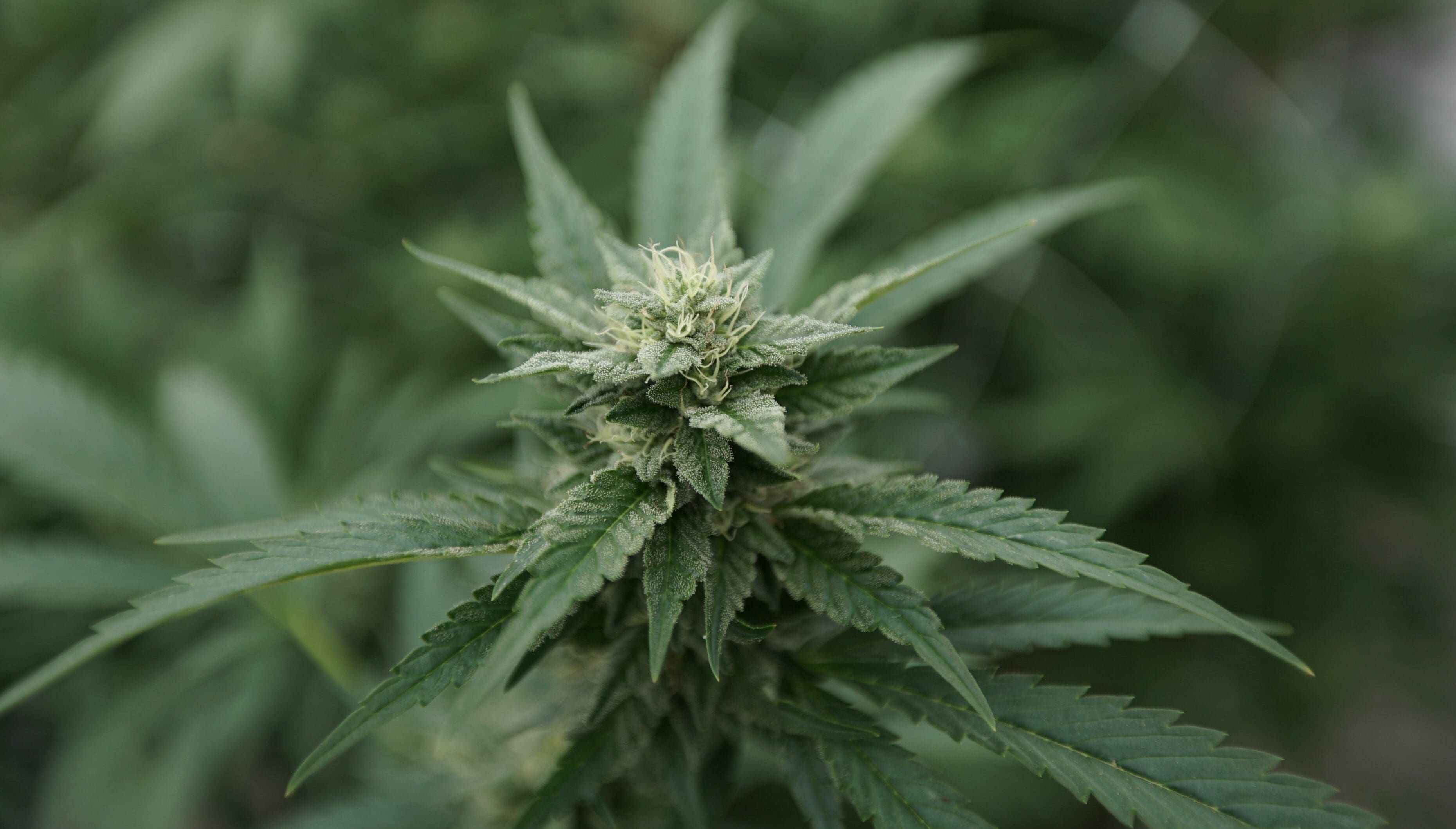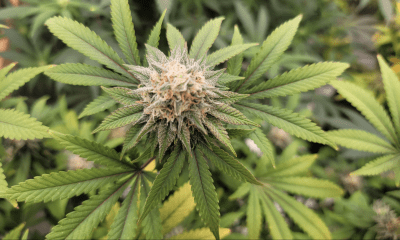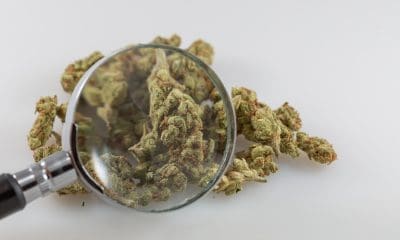Politics
Pennsylvania Lawmakers Suggest Marijuana Legalization Could Advance Imminently, As Neighboring State Markets Add Urgency To Reform

Pennsylvania lawmakers are signaling that a bill to legalize marijuana could advance imminently—with few remaining differences between House and Senate proposals, an added sense of urgency as more neighboring state markets come online and bipartisan agreement about the need to avoid a state-run regulatory model.
At a press conference on Monday, Reps. Aaron Kaufer (R) and Emily Kinkead (D), as well as Sen. Sharif Street (D), gave a status update on the push for adult-use legalization in the Keystone State.
Kaufer suggested that there was enough alignment between each chamber’s reform measures to move them “today,” or before a budget deadline this week. “Our goal is to get this done as soon as possible,” he said, adding that legalization is “part of the governor’s budget proposal.”
“I think everybody standing up here, we’ve been working diligently to try to get together something that can pass today in both the House and Senate,” the GOP representative said.
Street, along with Sen. Dan Laughlin (R), introduced a legalization bill last year, while Kaufer and Kinkead announced their intent to file a cannabis measure earlier this month. While the House measure hasn’t been formally filed yet, Kaufer said there’s “not too much of a difference” between the chambers’ proposals.
In terms of where lawmakers agree, the participants made clear that there’s a bipartisan understanding that Pennsylvania is falling behind surrounding states, with repeated mentions of the fact that about 90 percent of the state borders another state that either has or is implementing adult-use legalization.
That includes neighboring Ohio, which is poised to launch adult-use cannabis sales in short order after regulators opened up applications for existing medical cannabis dispensaries to start serving recreational consumers and began issuing provisional licenses last week.
“We are surrounded by states that have already legalized the use the adult use of cannabis, and they are taking advantage of the fact that we have not,” Kinkead said. “There are Pennsylvania dollars to be spent on adult use [cannabis], and they want to capitalize on it when we should be doing that.”
“We should be using Pennsylvania dollars in Pennsylvania to support Pennsylvanians, and we should be learning from all of the other states about the way to do this best and the way to best capitalize on it,” she said.
Street agreed, noting that “folks from Canada, Ohio, New Jersey, New York, are all benefiting from our failure to move forward and pass cannabis reform.”
“Our citizens are going across the state [border] and they’re buying cannabis now,” he said. “And moreover, those who don’t do that, who are buying in the illicit market, they don’t know what they’re buying. It could be laced with something. It could be laced with anything.”
“There are people who only intended to use cannabis—and use it in a way that wouldn’t have caused them any serious harm—who are being harmed today because they are getting cannabis in an illicit market where there’s no regulation and no testing,” the senator said.
“It’s time for us to move these bills. It’s time for the House and Senate to move together. We now have bills that aren’t too far apart in both chambers,” Street said. “Pass a bill, let’s put it on the governor’s desk and let’s give the people of Pennsylvania an opportunity to benefit from this economically, to reduce those criminal justice and then not have to go to another state to do something they should be able to do right here in Pennsylvania.”
Another area of general consensus, the lawmakers said, is that the legal cannabis market should not be state-run, as other lawmakers—including Rep. Dan Frankel (D), chair of the House Health Committee who previously sponsored cannabis legalization legislation—have floated.
Street said that “there’s not support [among Democrats]—not just Republican opposition.” He argued that the Liquor Control Board that would presumably be responsible for state-controlled cannabis sales under the hypothetical model “hasn’t even got alcohol right,” pointing to criticisms about problematic alcohol marketing in largely Black communities.
The legislators also touted a new report projecting that Pennsylvania would see up to $2.8 billion in adult-use marijuana sales in the first year of implementing legalization, generate as much as $720 million in tax revenue and create upwards of 45,000 jobs.
While the participants signaled that their vision for reform is consistent with Gov. Josh Shapiro’s (D) budget request, there has been some pushback against certain of the governor’s proposals, including his call for a 20 percent tax on marijuana products.
Street and Laughlin also recently participated in an X Spaces event where they said the votes are there to pass a marijuana legalization bill as soon as this year, though they stressed that the governor needs to work across the aisle to get the job done—and argued that it would be helpful if the federal government implemented its proposed cannabis rescheduling rule sooner rather than later.
Meanwhile, Street was also among advocates and lawmakers who participated in a cannabis rally at the Pennsylvania State Capitol this month, where there was a significant emphasis on the need to incorporate social equity provisions as they move to advance legalization.
Laughlin, for his part, also said an event last month that the state is “getting close” to legalizing marijuana, but the job will only get done if House and Senate leaders sit down with the governor and “work it out.”
Warren County, Pennsylvania District Attorney Robert Greene, a registered medical cannabis patient in the state, also spoke at that rally. In January, Greene filed a lawsuit in federal court seeking to overturn a ban preventing medical marijuana patients from buying and possessing firearms.
Two Pennsylvania House panels held a joint hearing to discuss marijuana legalization in April, with multiple lawmakers asking the state’s top liquor regulator about the prospect of having that agency run cannabis shops.
—
Marijuana Moment is tracking more than 1,500 cannabis, psychedelics and drug policy bills in state legislatures and Congress this year. Patreon supporters pledging at least $25/month get access to our interactive maps, charts and hearing calendar so they don’t miss any developments.
![]()
Learn more about our marijuana bill tracker and become a supporter on Patreon to get access.
—
Also in April, members of the House Health Committee had a conversation centered on social justice and equity considerations for reform.
That took place days after Rep. Amen Brown (D) filed a marijuana legalization bill that he described as “grounded in safety and social equity.”
“I’m here to get this done,” Brown said at a recent rally, noting that he and other people he knows have a “personal experience” with current marijuana policy.
At a prior meeting in March, members focused on criminal justice implications of prohibition and the potential benefits of reform.
At another hearing in February, members looked at the industry perspective, with multiple stakeholders from cannabis growing, dispensing and testing businesses, as well as clinical registrants, testifying.
At the subcommittee’s previous cannabis meeting in December, members heard testimony and asked questions about various elements of marijuana oversight, including promoting social equity and business opportunities, laboratory testing and public versus private operation of a state-legal cannabis industry.
And during the panel’s first meeting late last year, Frankel said that state-run stores are “certainly an option” he’s considering for Pennsylvania, similar to what New Hampshire Gov. Chris Sununu (R) recommended for that state last year, though a state commission later shied away from that plan.
The cannabis proposal the Brown filed in the House in April is an identical companion to a bipartisan Senate cannabis legalization measure that was introduced last year.
Photo courtesy of Chris Wallis // Side Pocket Images.
















